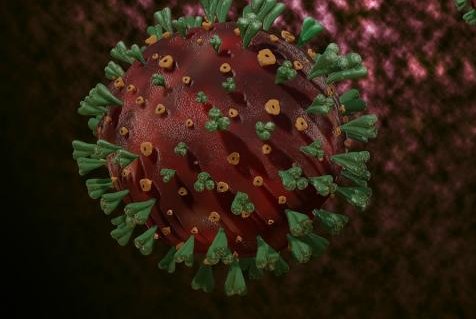University of Arizona researchers find that people can develop long-lasting immunity to COVID-19. Photo by
Shaun_F/Pixabay
Oct. 13 (UPI) -- People sickened with COVID-19 produce "high-quality" antibodies against the virus five to seven months after they become infected, according to an analysis published Tuesday by the journal Immunity.
The findings suggest that those infected with the new coronavirus potentially can develop long-lasting immunity to it, researchers from the University of Arizona said.
Antibodies are proteins produced by the human immune system to help the body fight off viruses.
"Many concerns have been expressed about immunity against COVID-19 not lasting," study co-author Deepta Bhattacharya said in a statement.
"We clearly see high-quality antibodies still being produced five to seven months after ... infection," said Bhattacharya, an associate professor of immunology at the University of Arizona.
With reports of cases of reinfection -- in which people are infected with COVID-19 twice -- in the United States and elsewhere, questions remain about whether it's possible for those who have the virus to develop an immune response against it naturally.
Earlier studies assessed antibody production from initial infections and suggested that levels drop quickly after a person becomes ill, providing only short-term immunity.
However, these findings may have been based on short-lived plasma cells and failed to take into account long-lived plasma cells and the high-affinity antibodies they produce, Bhattacharya and his colleagues said.
Short-lived plasma cells are generated in response to an infection, while long-lived plasma cells provide longer term immunity against infections.
For this study, the researchers performed antibody testing on 5,882 volunteers in Arizona starting April 30.
Most tests look for antibodies at S1, which is where the so-called "spike" protein of the new coronavirus binds to a protein receptor to infect cells, the researchers said.
However, the University of Arizona test uses two different parts of the virus -- S1 and S2 -- to search for antibodies, and they must be present in both locations for the test to be deemed positive, they said.
Of 5,882 tests completed, only one returned a false positive, an error rate of less than 0.02%. The test received a U.S. Food and Drug Administration emergency use authorization in August.
Using the approach, the researchers tracked antibody levels in study participants who tested positive for COVID-19 over several months and found that they were present in blood at viable levels for at least five to seven months.
A similar study -- in 300 people infected with COVID-19 -- also published Tuesday, in the journal Science Immunology, found that those sickened with the virus continue to have sufficient antibodies to foster immunity for up to three months.
"The latest time-points we tracked in infected individuals were past seven months, so that is the longest period of time we can confirm immunity lasts," Bhattacharya said.















